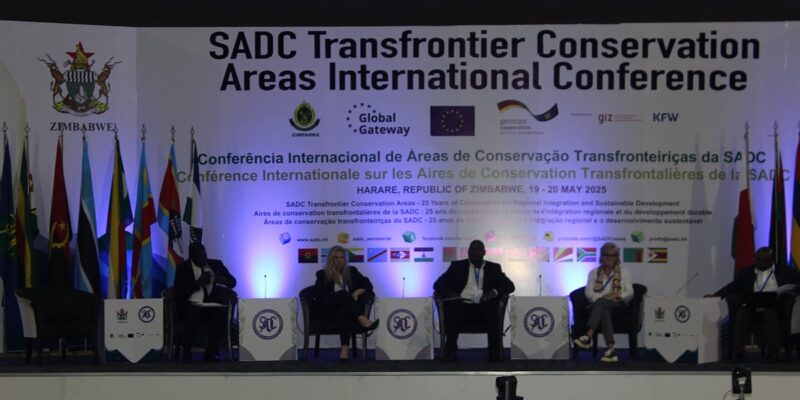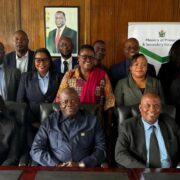By Ross Moyo
As Zimbabwe enters day four today in hosting the Southern African Development Community (SADC) Transfrontier Conservation Areas (TFCAs) Conference in Harare, yesterday saw stakeholders underscore the importance of TFCA’s in enhancing SADC Tourism, employment while Fighting Poverty and Climate Change.This was confirmed by Dr Mike Knight, Transboundary KAZA (Kavango-Zambezi) Programme Leader with the World Wide Fund for Nature (WWF), who highlighted the economic importance of conservation tourism.
“Many iconic tourism sites in southern Africa lie within TFCAs. The TFCA model enhances regional tourism, generating employment and reducing poverty in marginalised areas. It promotes a community-centred and regionally integrated approach to conservation,” he said.
Other SADC Delegates addressed a growing emergency regional challenge of elephant overpopulation, which continues to fuel human-wildlife conflict, ecological strain, and unsustainable conservation costs which the conference aims to propose regional solutions to manage wildlife populations more effectively, while aligning conservation with the socio-economic development agenda.
By design, TFCAs also promote regional cooperation in managing natural resources which the bloc’s regional countries, share boosting biodiversity, community beneficiation, and cross-border ecotourism.
European Union Agriculture and Environment Programmes Manager, Luis de Torres Bonaechea, affirmed the strengthening of the SADC TFCA Programme for 2023–2033.
“We look forward to an actionable roadmap, which includes new binding agreements to establish more TFCAs, joint management frameworks, and long-term sustainable financing models between SADC Heads of State and international development partners,” he said.
TFCA is an initiative first adopted in 1999 serving as a flagship model for cross-border ecological cooperation, underpinned by the principles of sustainable use, stakeholder inclusivity, and regional integration which also identified Local communities as key drivers in regional conservation at the ongoing SADC TFCA conference which ends tomorrow whilst advocating for local authorities and community involvement in the management of transboundary conservation zones.
Discussions centred on sustainable conservation financing, wildlife management, ecotourism, and inclusive development for communities residing within conservation zones as the conference marked 25 years since the inception of the TFCA programme.
Director for International Conservation at the Zimbabwe Parks and Wildlife Management Authority, Professor Patience Gandiwa also weighed in that TFCAs represent a vital tool for regional cooperation, especially in biodiversity protection and climate resilience.
“Nature knows no borders and neither should conservation. We are working with partners to drive cross-border conservation, empower local communities, and ensure ecological sustainability. Panellists also agreed to prioritise wildlife population management and address the increasing impact of climate change on conservation,” she said.














Comments